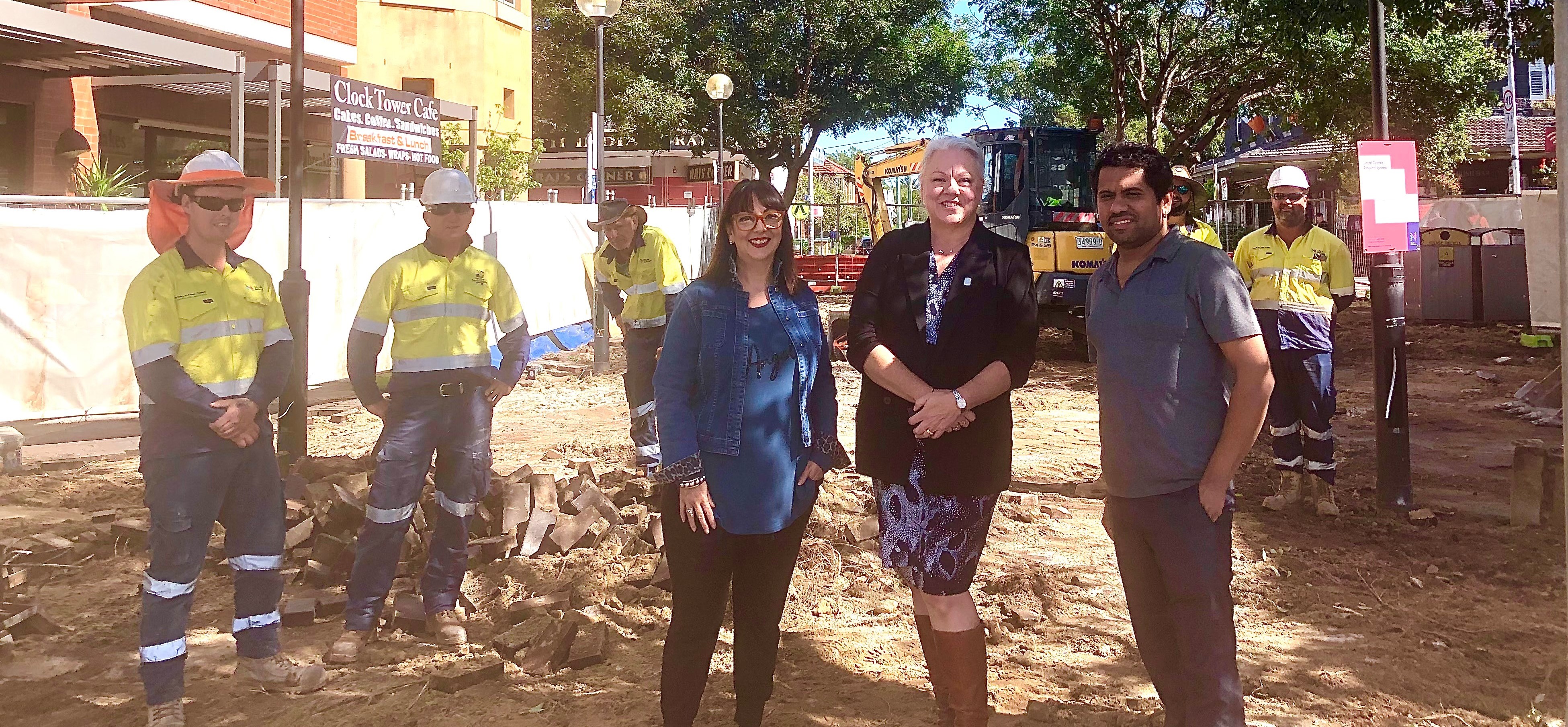NSW POWERS AHEAD IN JOB RECOVERY
- NSW is getting back to work with more than 14,500 people gaining full-time or part-time jobs last month, with figures released showing the state’s unemployment rate dropping to 5.4 per cent.
- Treasurer Dominic Perrottet said the NSW unemployment rate is 0.3 percentage points lower than last month and is the second lowest among the states after Western Australia.
LAST PIECE OF THE LINK IN SCENIC HARBOUR FORESHORE WALK
- Premier Berejiklian marked the opening of the 300-metre-long final piece of the 11 kilometre Barangaroo foreshore walk from Woolloomooloo to the Anzac Bridge.
- Premier Gladys Berejiklian said opening up the last piece of the 11 kilometre walk is a fundamental part of Barangaroo’s transformation from a once neglected and inaccessible area into a world-class cultural, residential, business and retail hub.
- More than 100 trees were planted in this section of the foreshore walk which contributes to our goal to plant one million trees by 2022.
COMMUNITY FEEDBACK DELIVERS BETTER BYPASSES FOR SINGLETON AND MUSWELLBROOK
- The NSW Government is powering ahead with plans for the Singleton bypass, announcing it will build a full interchange for the bypass with the Putty Road.
- Deputy Premier John Barilaro and Minister for Regional Transport and Roads Paul Toole said the Singleton bypass would be the biggest road infrastructure project in Singleton’s history.
- Construction of the Singleton and Muswellbrook bypasses is expected to create more than 2000 jobs.
EUROPEAN AMBASSADORS ENERGISED BY INVESTMENT OPPORTUNITIES IN HUNTER REGION
- A NSW Government led trade mission in the Hunter region kicks off, showcasing the region’s investment opportunities in defence, aerospace, energy and manufacturing industries to ambassadors from 14 countries and the European Union.
- Deputy Premier John Barilaro said the trade mission is the fifth in three years and part of a targeted investment strategy that is making regional NSW a preferred choice for global investors.
NSW GOVERNMENT SUPPORT FOR WINE INDUSTRY
- The NSW Government and the NSW Wine Industry Association have signed a Memorandum of Understanding (MOU) that will deliver support to producers and provide a renewed focus on increasing exports and regional industry development and encourage further innovation.
- Deputy Premier John Barilaro said the agreement, signed at a Hunter Valley gathering of wine industry leaders who were meeting with a visiting Trade Mission from European Union nations, will deliver a range of support measures and commitments with an equivalent value of more than $3 million through to June 2023.
SMALL BUSINESS REBATE SCHEME KICKS OFF
- Small businesses are encouraged to sign up for a new $1500 rebate scheme to help cover the cost of NSW and local government fees and charges.
- Treasurer Dominic Perrottet said the Small Business Fees and Charges Rebate was designed to benefit tens of thousands of small businesses across the state as NSW continues its post-pandemic recovery.
- The rebate will be available until 30 June 2022. To apply and for more information, including the program guidelines, visit www.service.nsw.gov.au/small-business-fees-and-charges-rebate
COMMUNITY URGED TO STAY ALERT DESPITE STORM SEASON ENDING
- While storm season has finished for another year, and the La Niña weather pattern has passed, NSW State Emergency Service (NSW SES) is reminding communities of the need to stay vigilant and prepared.
- Minister for Police and Emergency Services David Elliott reminded the community that although the storm season is over, the community cannot get complacent.
- For more information on how to prepare for storms and floods and for the latest warnings and alerts, visit ses.nsw.gov.au.
FLAGSHIP STRATEGY TO SUPPORT NSW VETERANS
- The service and sacrifices of veterans and their transition from military to civilian life are in focus with the NSW Government launching the State’s first whole-of-government strategy, developed using insights and expertise from ex-serving personnel and their families.
- Minister for Veterans Geoff Lee said the NSW Government Veterans Strategy aims to improve existing support services and identify new initiatives.
- Read the NSW Government Veterans Strategy here: https://www.veterans.nsw.gov.au/assets/veterans-affairs/NSW-Veterans-Strategy-2021-24.pdf
- Read the NSW Veterans Action Plan here: https://www.veterans.nsw.gov.au/assets/veterans-affairs/Veterans-Strategy-Action-Plan-2021-22.pdf
MORE THAN $2.3 MILLION FOR COUNCILS TO MANAGE THEIR COASTLINES
- The NSW Government announced more than $2.3 million in coastal funding has been awarded to councils through the 2020-2021 Coastal and Estuary Grants Program’s planning stream which will provide assistance to councils in managing their coastlines.
- Minister for Local Government Shelley Hancock congratulated the councils of Ballina Shire, Bellingen Shire, Byron Shire, City of Canterbury-Bankstown, Fairfield City, Kiama Municipal, Shoalhaven City and Wollongong City in partnership with Shellharbour City on their successful applications for funding.
- Further information on the program can be found here.

